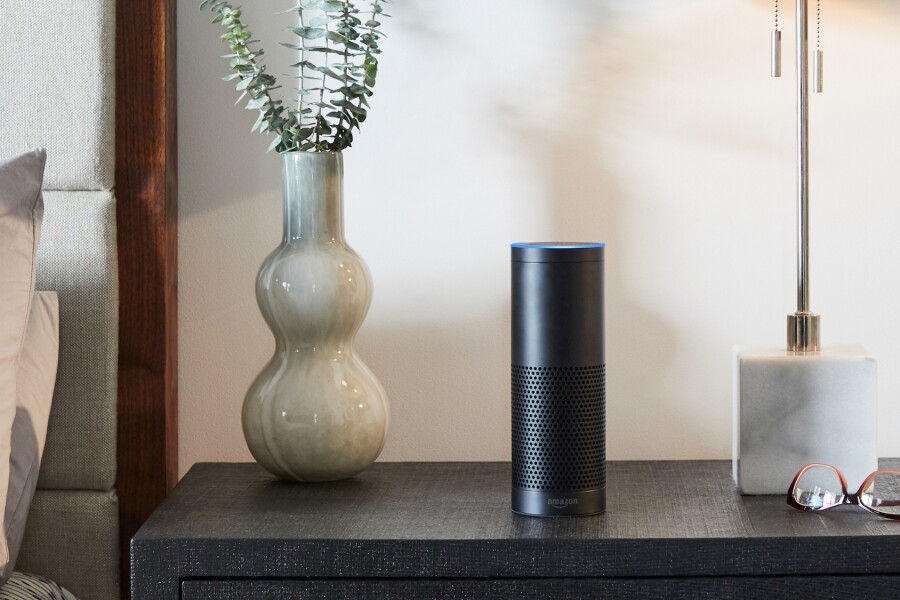The ease and convenience of international travel continue to bring the world closer together through mutual appreciation of culture and tradition, and global connections being fostered across physical borders. Modern technology plays a significant role in the way people choose their destinations and plan their travel. This includes the way that travelers engage with the places they stay in when they travel – comfort, luxury, and convenience are sought-after elements of hotels and resorts, and modern travelers continue to prioritize convenience and tech-assisted experiences when choosing accommodations. One of the digital technologies that can transform the guest experience in hotels is Alexa for Hospitality. This voice-assisted technology is easy for guests to understand and use, even if they are not familiar with Alexa. Hotel services and room functions can be accessed and controlled using Alexa Smart Properties, making hotel stays convenient and stress-free for guests. Another significant benefit of the integration of a system like Alexa is that it can streamline and optimize the work conducted by hotel staff from all departments. This article explores the many ways voice assistance platforms like Alexa can assist hotel staff.
Streamlining Housekeeping And Room Service Requests
Housekeeping teams are often the most numerous and busiest departments in hotels, especially large hotels and resorts with capacities reaching hundreds or even thousands of guests. Housekeeping staff are responsible for managing guest requests, standard room clean-up, and room changeover between check-outs and check-ins. These tasks, in addition to the physical tasks of cleaning and sorting hotel linen and guest clothing items, are extremely demanding and time-consuming. By integrating a system such as Alexa Hotel managers can optimize the way that their housekeeping team works, reducing extraneous stress and demand. Using voice-assistive technology, guests can relay their requests for additional amenities like clean towels and extra blankets, or room-clean-up. The housekeeping team can be informed of these requests in real time without having to manage phone calls and ensure that guest needs are attended to as soon as possible. This streamlined system of operation can also apply to room service, which is often available around the clock at luxury hotels. By reducing the number of manual communications between guests and staff, and between different departments, operations are made more efficient and services can be delivered faster. This can help to improve guest and employee satisfaction.
Multitasking Capabilities For Concierge Staff
Concierge staff can become extremely overwhelmed with incoming and outgoing guests, as well as managing the requests of current guests. This is especially true in high-occupancy hotels that cater to international guests: 24-hour concierge services are usually available to guests, who expect top-class service at all times of the day. Tech integrations like Alexa Smart Propertiescan connect guests with hotel services and reduce some of the pressure concierge staff experience. For example, instead of having to field multiple calls from guest rooms while managing the check-in or check-out processes of incoming or outgoing guests, a voice-assisted system can allow requests to come through without interrupting other processes. For requests that do not require concierge assistance, a voice-assisted system can provide the guest with answers directly. For example, if information regarding specific tourist attractions is required, guests can simply ask Alexa directly. This can significantly reduce the amount of requests that concierge staff receive overall.
Enhancing Managerial Oversight And Staff Coordination
Having a digital system for managing guest requests can allow for optimized oversight and better coordination of separate departments. Streamlining the requests received by guests and being able to check their status in real time can reduce the pressure on managers to conduct multiple manual checks and follow-ups between departments. Team members can easily see relevant requests and complete the appropriate tasks to fulfill them, without senior staff having to act as a go-between to relay information. While this certainly helps to ensure guest satisfaction, it also means that hotel staff can more readily attend to their core tasks and responsibilities with less time spent on manually coordinating requests. This way, quality of service, guest satisfaction, and employee performance are improved.





Comments